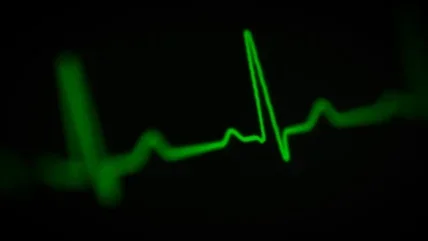
Anumana, a leading AI-driven health technology company and portfolio company of nference, announced a new study that revealed promising results in support of further development of its investigational pulmonary hypertension (PH) algorithm. The study, “An electrocardiogram-based AI algorithm for early detection of pulmonary hypertension,” which was published in the European Respiratory Journal, determined that the algorithm used in the study can detect PH using routine 12-lead electrocardiogram (ECG) data.
PH is a severe, progressive disease where delayed diagnosis is associated with a higher risk of morbidity and mortality.1-5 Despite an increasing number of available treatments for the disease, diagnostic delays – often of more than two years from symptom onset – are common, due to the non-specific symptoms at presentation.6-9 To address this challenge, Anumana, in collaboration with Mayo Clinic, Vanderbilt University Medical Center (VUMC), and Janssen Research & Development, LLC, a Johnson & Johnson company, has developed an Al algorithm designed to detect PH using routinely collected 12-lead ECG data.
In the newly published study, a convolutional neural network developed for detecting PH was trained and validated using retrospective ECG and either right heart catheterization or echocardiogram data from 39,823 PH-likely patients and 219,404 control patients from Mayo Clinic. The algorithm used in the study was further validated on an additional 6,045 PH-likely patients and 24,256 control patients from VUMC. The algorithm demonstrated promising performance in identifying PH, achieving an area under the receiver operating characteristic curve (AUC) of 0.92 in the diagnostic test set at Mayo Clinic and 0.88 at VUMC, where AUC values range from 0 to 1.10
The PH algorithm received Breakthrough Device designation from the FDA in 2022, and Anumana is continuing to develop the PH algorithm in pursuit of FDA clearance and CE marking. Anumana has previously received FDA 510(k) clearance for its ECG-AI™ LEF algorithm, which helps clinicians detect low ejection fraction in patients at risk of heart failure.
“The promising data from our study suggest that an AI algorithm has the potential to non-invasively detect PH at an early stage using standard ECGs. This finding marks a significant step forward in the care and management of PH patients who often have a long diagnostic journey,” said Dr. Hilary DuBrock, a Mayo Clinic pulmonologist and lead author of the study.
“These new data underscore the potential of AI algorithms to empower clinicians to uncover diseases earlier, improve patient outcomes and bring us one step closer to our mission to transform cardiac care,” said Maulik Nanavaty, CEO of Anumana. “We’re continuing to work closely with our partners to further clinically validate this much-needed algorithm, which can help clinicians worldwide get PH patients into treatment sooner to address symptoms and prolong life.”
Mayo Clinic has a financial interest in the technology referenced in this press release. Mayo Clinic will use any revenue it receives to support its not-for-profit mission in patient care, education and research.






